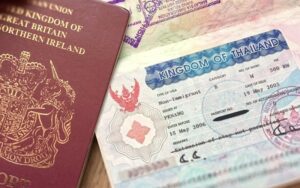Thailand has long been an attractive destination for foreign companies seeking to expand their presence in Southeast Asia. While some investors choose to establish a fully operational Thai Limited Company, others prefer to begin with a lighter presence to explore the market, conduct research, and support overseas operations without engaging directly in revenue-generating activities. For these purposes, a Representative Office (RO) is one of the most suitable structures.
A Representative Office allows foreign companies to maintain a legal presence in Thailand, employ staff, and conduct specified non-trading activities without being subject to full commercial and corporate tax burdens. This article explains the nature of Representative Offices, their permitted scope, legal requirements, establishment process, and key considerations for foreign investors.
Permitted Activities of a Representative Office
The Thai Ministry of Commerce (MOC) strictly regulates what a Representative Office may do. The permitted activities are limited to the following five functions:
-
Sourcing of Goods and Services
-
Identifying, procuring, or verifying quality of goods and services in Thailand for the head office abroad.
-
-
Quality Control and Inspection
-
Monitoring and ensuring the quality of products manufactured or purchased in Thailand before they are shipped overseas.
-
-
Providing Information
-
Supplying information about goods and services produced in Thailand to the head office or affiliated companies abroad.
-
-
Market Research
-
Conducting market studies and analyzing business trends in Thailand for the benefit of the foreign parent company.
-
-
After-Sales Support
-
Providing advisory and technical support services to customers in Thailand who purchased goods or services from the head office abroad.
-
Any activity beyond these five is prohibited. For example, a Representative Office may not accept purchase orders, issue invoices, sign contracts on behalf of the head office, or receive payment for goods and services.
Advantages of Establishing a Representative Office
For foreign companies that wish to explore or support business in Thailand without immediate full investment, a Representative Office offers several benefits:
-
No Corporate Income Tax: Since it cannot generate income, the RO does not pay corporate tax, except minimal tax on interest income.
-
Low-Risk Market Entry: A safe structure to study the Thai market, build relationships, and establish brand presence without full regulatory obligations of a trading company.
-
Hiring Flexibility: The office can employ both Thai and foreign staff, provided visa and work permit requirements are met.
-
Ease of Transition: If the business grows, the RO may later be upgraded to a Thai Limited Company or Branch Office to engage in commercial activities.
-
Government Recognition: Operating as a legally registered entity with the Department of Business Development (DBD) enhances credibility with local stakeholders.
Requirements for Establishing a Representative Office
To set up a Representative Office in Thailand, the following conditions must generally be met:
-
Foreign Parent Company
-
Must have been established for at least one year before applying.
-
Must hold 100% ownership of the Representative Office.
-
-
Capitalization
-
A minimum capital of THB 3 million must be injected into Thailand to fund the office.
-
At least 25% of this capital must be remitted within the first three months of registration, 50% within the first year, and the remaining within three years.
-
-
Office Location
-
The RO must have a registered office address in Thailand, supported by a lease or rental agreement.
-
-
Representative Office Manager
-
A manager must be appointed, either Thai or foreign, to oversee operations and ensure compliance with Thai law.
-
-
Employment of Staff
-
While there is no strict minimum staff requirement, employing local employees strengthens the application and supports work permit requests for foreign staff.
-
Step-by-Step Process of Establishing a Representative Office
The procedure for setting up a Representative Office involves several steps with the Department of Business Development (DBD):
Step 1: Prepare Documentation
Key documents include:
-
Application form and supporting declaration.
-
Parent company’s certificate of incorporation and business profile.
-
Financial statements of the parent company (last 3 years).
-
Power of attorney authorizing the local representative.
-
Passport or ID of the appointed RO manager.
-
Lease agreement for the office premises.
All foreign-language documents must be translated into Thai and notarized.
Step 2: Apply for Registration
The application is submitted to the DBD. The process typically takes 2–4 weeks, depending on the completeness of documents and workload of the DBD.
Step 3: Receive Approval
Once approved, the Representative Office will receive a registration certificate, authorizing it to operate in Thailand.
Step 4: Register for Tax Identification
Although the RO is not subject to corporate income tax, it must obtain a Tax ID from the Revenue Department for administrative purposes.
Step 5: Visa and Work Permit Applications
If foreign staff are required, the RO must apply for non-immigrant business visas and work permits. Generally, the RO must employ at least four Thai employees for each foreigner, similar to other foreign business entities.
Compliance and Ongoing Obligations
Even though a Representative Office has limited functions, it must still comply with certain legal obligations:
-
Accounting: Annual financial statements must be prepared and submitted to the DBD, even if the office has no income.
-
Auditing: An external auditor must review and certify the financial statements.
-
Tax Filings: Although no corporate tax is payable, the RO must file certain tax forms, including withholding tax and value-added tax (if applicable for imported services).
-
Labor Compliance: If hiring employees, the RO must register for Social Security and comply with Thai labor laws.
Failure to comply with these obligations can result in fines, suspension, or revocation of registration.
Key Considerations for Foreign Investors
-
Strategic Purpose
-
A Representative Office is ideal for market research, liaison, or support roles, but not for trading or direct sales. If commercial operations are intended, a Thai Limited Company or Branch Office is more appropriate.
-
-
Cost vs. Benefit
-
The minimum capital requirement of THB 3 million and compliance obligations may be significant for small companies. Investors should evaluate whether an RO or other structure better suits their strategy.
-
-
Work Permits for Foreigners
-
Securing visas and work permits for foreign managers requires adherence to Thai employment ratios. Early planning ensures smooth staffing.
-
-
Exit and Transition
-
If the parent company later decides to expand commercially, transitioning from an RO to a full company should be carefully planned to minimize tax and regulatory hurdles.
-
Conclusion
Establishing a Representative Office in Thailand provides foreign companies with a valuable foothold in one of Southeast Asia’s most dynamic economies. While its scope of activities is limited to non-commercial functions, the RO offers an excellent vehicle for conducting research, managing quality control, and supporting after-sales services without heavy tax burdens.
By understanding the registration process, capital requirements, and compliance obligations, foreign investors can make informed decisions about whether a Representative Office is the best entry strategy. For many companies, it serves as an effective bridge to building stronger business relationships in Thailand while preparing for future expansion.






















